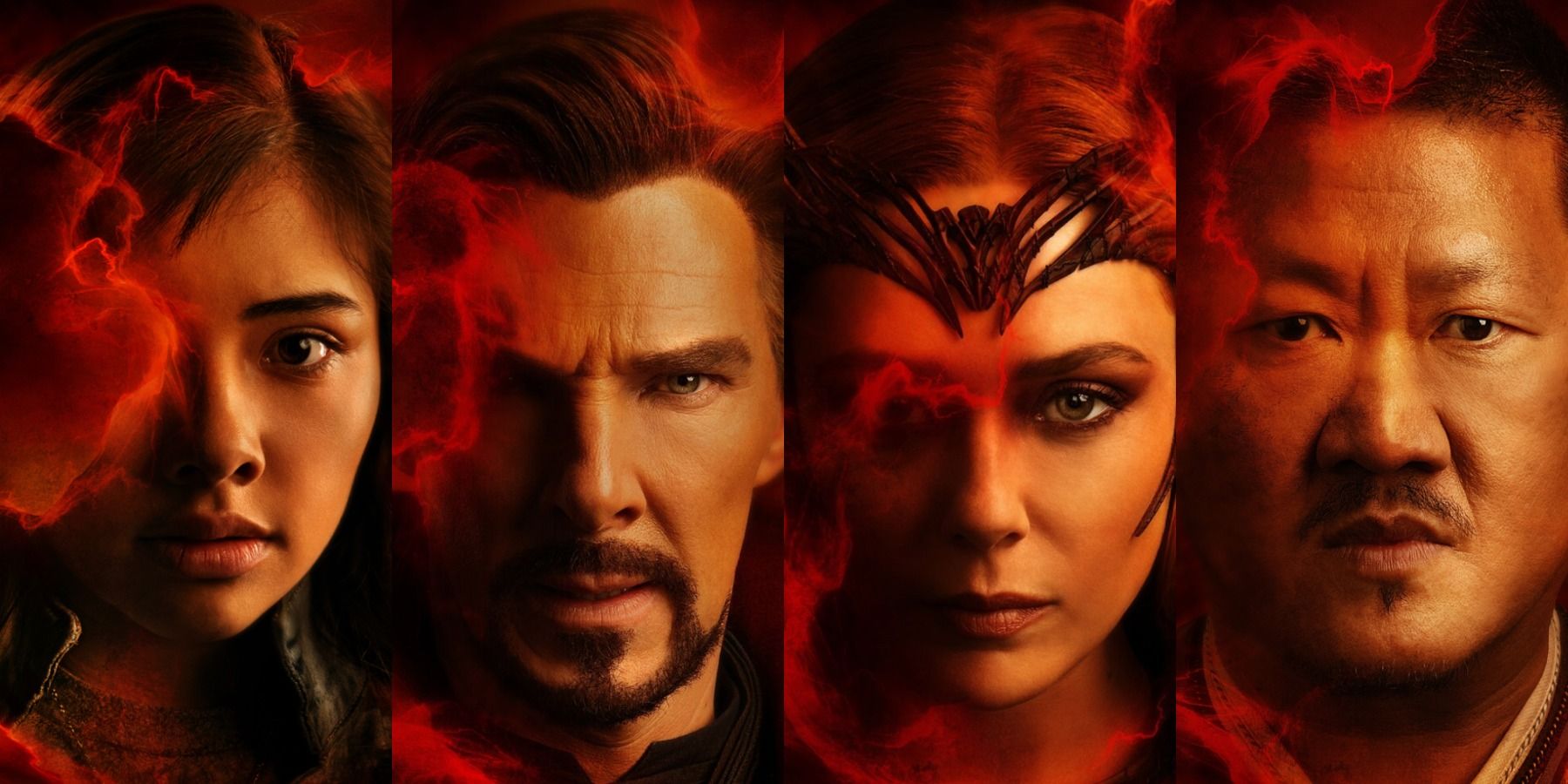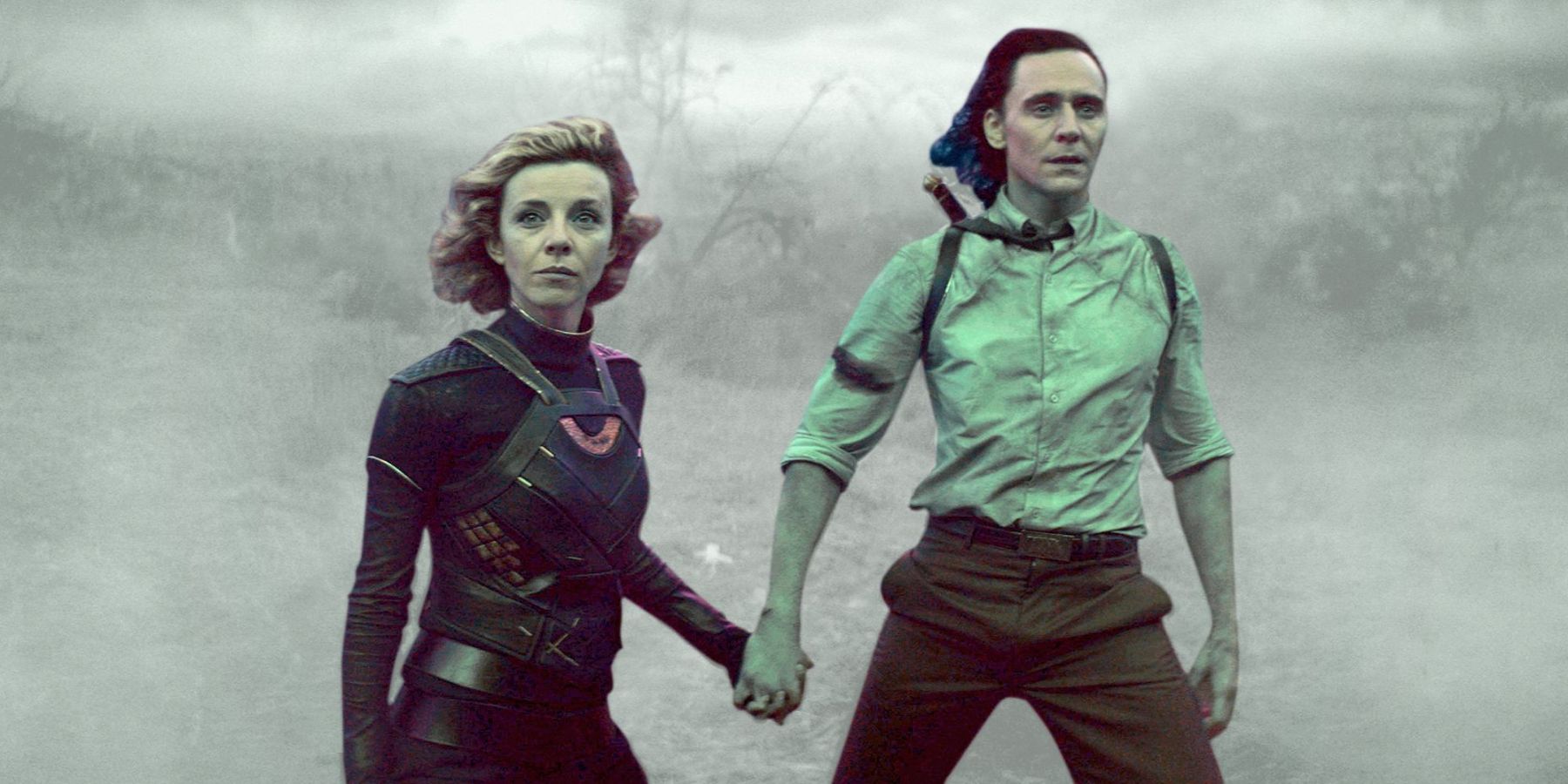The Marvel Cinematic Universe as it currently exists, counting only the films and the Disney+ series, would take 88 hours and 27 minutes to watch in full. Imagine a new audience member, eager to check out the biggest phenomenon in entertainment history, and standing at the precipice of that mountain.
Now, very few Marvel fans would ever honestly say that a viewer needs to take in every minute of that almost four-day uninterrupted marathon to understand what's going on. A ton of the individual works stand on their own or explain themselves enough to get by unaided. But is the franchise headed towards a point of complete incomprehensibility? And are the Disney+ shows the tipping point?
The longest MCU film remains Avengers: Endgame at 181 minutes, just barely crossing three hours. The shortest Disney+ MCU series is Hawkeye, at 288 minutes, with many of the other shows coming in just under 300. Obviously, a season of television is longer than a film; the alternative would be bizarre. The problem at hand is that the massive branching narrative hides aspects of itself away across countless films, often leaving it unclear what one would have to watch to understand the next big blockbuster. Casual viewers are often left looking up guides to determine which pieces of the universe they have to make it through before they can understand the one they actually want to see. This is a bizarre problem for the consumer, but it's the clear goal of the studio: get audiences to watch as much content as possible. But it could be backfiring.
Take, for example, a moviegoer who has never seen an MCU project, but is a huge Sam Raimi fan and would like to see Doctor Strange in Multiverse of Madness. What would they need to take in to fully understand what's going on? Obviously, they'd need to see the first Doctor Strange; very few people would buy a ticket for a sequel without seeing the prequel and expect to understand it. But the film is also a jumping-off point from Strange's last MCU appearance, Spider-Man: No Way Home. It also heavily features Wanda Maximoff at the end of her arc from WandaVision, so that's required viewing too. Of course, that viewer probably wouldn't quite understand who Wanda and Vision are without watching Age of Ultron, so throw that on the pile. The film is so heavily based around the Multiverse that it's in the title, so Loki, the show that introduced that concept in the franchise, should also be on the list. That's 1,013 minutes — just under 17 hours — and there's still plenty more if that hypothetical viewer wants to get all the references.
Here's the kicker: over 10 of those 17 hours are contained within the two series mentioned. Loki is four hours and 19 minutes, while WandaVision is ten minutes short of six hours. The seasons of Disney+'s MCU series are an enormous time investment, and they've been heavily tied in with the larger plot. Doing all the math and laying out all the numbers like this might turn off a newcomer to the franchise. It also might make a longtime fan consider the amount of their time on Earth they've spent with these experiences, for good or for ill. It is absolutely daunting, and the decision to add full TV shows to the MCU was a tremendous change. This is not an issue of whether the series are good. A lot of them are, and they have tons of hardcore fans. It's an issue as to whether the growth of the franchise has made it inaccessible.
To look at the numbers, the average person might argue that jumping into the MCU now is untenable, but that isn't really the case. The fact is, even if the MCU crests one hundred hours, or a thousand, or any other amount, there are always ways to get the information one would need. That hypothetical Sam Raimi fan mentioned above doesn't really need to watch 17 hours of MCU content to know the canon; they just need to look up the information they need to understand and read the synopsis. Marvel has an attendant industry comprising countless blogs and publications exploring every detail of the ongoing film franchise, to the point that three or four articles or wiki pages could suffice. Thanks to the apparatus of nerd culture, no one ever really needs to watch any of the content they aren't interested in to get to the ones they are excited about.
If critics want to argue that the MCU oversaturated the market with its brand of content, that's fine. If people believe that the projects that make up the MCU are too long, that's perfectly fair. But the fact is, any viewer can jump in on any Marvel project, armed with the knowledge to understand it with very little time investment. With that in mind, fans should feel free to pick their favorites, and never sit through a piece they don't care about.



